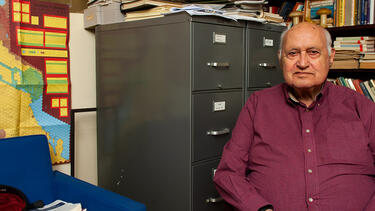All Insights Articles
Can we manage with(out) markets?
"Markets are a special set of rules of the game that define institutions to enable mass exchange of resources at a low cost." This is Martin Shubik's one-sentence definition of what a market is. Embedded in its few words are all the complexity and variation in how rules and institutions affect a market's functioning.

Can we fix discrimination in markets?
Studies and anecdotal evidence suggest that 40 years after the civil rights era, African Americans still find themselves under scrutiny in retail stores and women pay higher prices at car dealerships. How can we ensure fair treatment in markets?
What does it take to create a market?
Creating a new market is different from developing a new product or service — it requires convincing an array of customers, partners, and other constituencies to see the world differently. And the effects can be far reaching, as markets are capable of taking on a life of their own. A media and technological innovator, a leader in the use of finance to address social problems, and a creator of housing futures discuss the risks and rewards of attempting the trick.
What is a long life worth?
A document from 1787 Holland lists the names of girls whose income from government annuities was pooled and securitized, allowing investors to essentially bet that the girls would live a long time. Yale SOM Professors Will Goetzmann and Geert Rouwenhorst discuss how this novel financial device functioned and how it fits in the story of the development of more and more sophisticated securities.
Do markets need integrity?
For almost 40 years, Professor Michael C. Jensen has been a leader in elucidating the complex system of incentives and limitations that underlies business trends. Dean Joel Podolny spoke with Jensen about the market for corporate control, agency theory, and the benefits of integrity.
Can markets change society?
Professor Zhiwu Chen has been watching what’s happened as China adopts such financial instruments as mortgages and mutual funds. He was born in a rural village in China, and when he goes back, he says, he sees a country that’s being remade by markets.
How do you face the unknown?
Nature abhors a vacuum. Air invades emptiness. Water floods open space. What happens when a wall is breached and markets are allowed to enter countries where they’d previously been banned? In the 1990s, Rosemary Ripley participated in the infusion of private enterprise into former command economies.
What moves markets?
Markets bend to forces on the immense scale of macroeconomics. But they’re also nudged, poked, and even redirected by the individuals who work in them. In a 20-plus-year career, Teresa Barger has hit nearly every financial sector and every continent.
Are markets local or universal?
A market is a place (virtual or tangible) where buyers and sellers meet. Markets exist everywhere people do. But each market has its particular customs, as simple as a handshake or as intricate as a 40-page contract.
How can directors become truly independent?
Joseph S. Fichera proposes an innovative way to make corporate directors more independent and effective by providing them with better information.